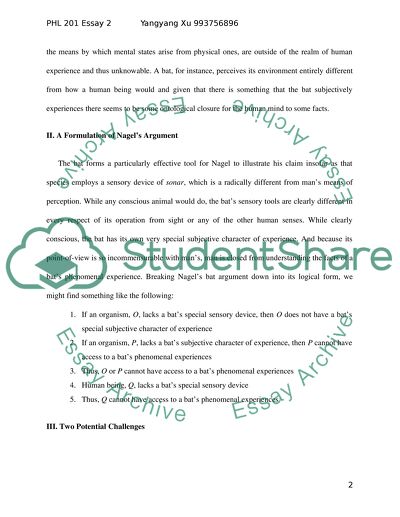Cite this document
(“Nagel's bat argument Essay Example | Topics and Well Written Essays - 2500 words”, n.d.)
Retrieved from https://studentshare.org/miscellaneous/1552716-nagels-bat-argument
Retrieved from https://studentshare.org/miscellaneous/1552716-nagels-bat-argument
(Nagel'S Bat Argument Essay Example | Topics and Well Written Essays - 2500 Words)
https://studentshare.org/miscellaneous/1552716-nagels-bat-argument.
https://studentshare.org/miscellaneous/1552716-nagels-bat-argument.
“Nagel'S Bat Argument Essay Example | Topics and Well Written Essays - 2500 Words”, n.d. https://studentshare.org/miscellaneous/1552716-nagels-bat-argument.


